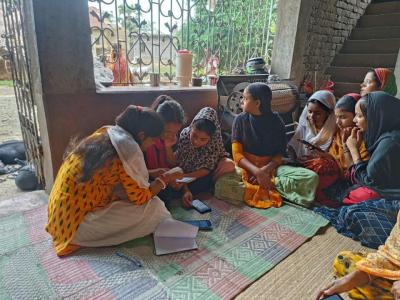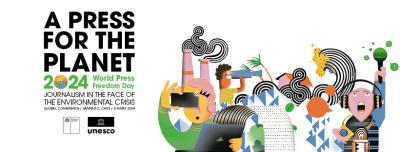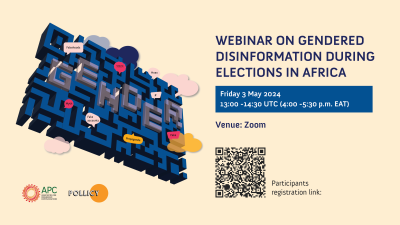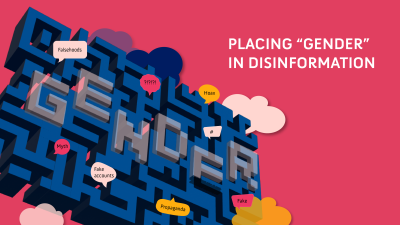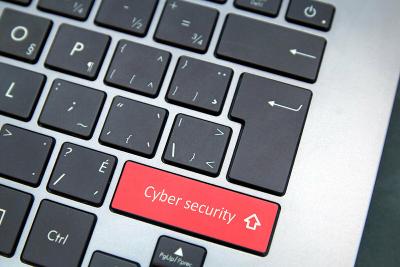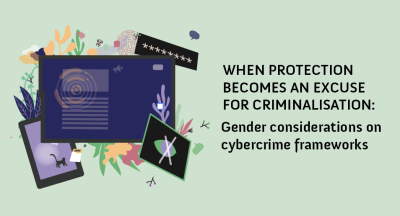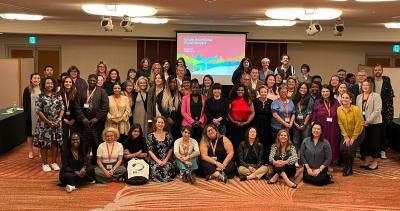
APC views disinformation as a multifaceted, global and complex issue that must be understood as a symptom of much broader information disorders. Disinformation causes confusion and has a chilling effect on freedom of expression and information. It directly impacts on the level of trust in the public sphere as a space for democratic deliberation. People no longer feel safe to express their ideas for fear of online harassment and of being targeted by disinformation campaigns; others feel paralysed and silenced by the puzzlement and uncertainty created by the surrounding information pollution and remove themselves from public debate concerning key issues of public interest.
The impact of disinformation is particularly pernicious against groups in situations of vulnerability or marginalisation. APC has observed that longstanding issue-based campaigns are particularly strong in relation to gendered disinformation, hatred against minorities and vulnerable groups, and human rights and environmental activists. These issue-based campaigns take different formats and narratives to adapt to current newsworthy stories and events.
The weaponisation of disinformation against women in public spaces has long been pointed out as a form of gender-based violence online. It is important, however, to recognise it as a specific phenomenon. Gendered disinformation is a subset of online gendered abuse that uses false or misleading gender and sex-based narratives against women, aimed at deterring them from participating in the public sphere. It combines three defining characteristics of online disinformation: falsity, malign intent, and coordination.
Gendered disinformation targets not only women, but feminist struggles and gendered discourse. In practice, it is used to silence women, to push them to self-censorship, and to restrict their civic space.
The situation is even more striking from an intersectionality lens. Female political leaders and activists from racial, ethnic, religious or other minority groups are targeted far more often than their white colleagues.
What have we done so far?
APC has carried out several policy-related and public-facing actions to draw attention to the fact that increasingly, disinformation campaigns particularly target women and gender-diverse individuals, marginalised groups, and human rights and environmental activists. Of particular concern for APC are the disinformation campaigns that target feminist struggles and gendered discourse in an attempt to silence women, push them to self-censorship, and restrict their civic space. These campaigns are a direct attack not only against specific women, but against gender justice.
In June 2021, APC sent a submission in response to the call by Irene Khan, UN Special Rapporteur on the promotion and protection of the right to freedom of opinion and expression, for contributions to the thematic report to be presented to the 76th session of the United Nations General Assembly. In this submission, APC reviewed the repercussions that gendered disinformation has on women’s public participation, activism and work, providing a reflection on the main barriers, challenges and threats that result in the curtailment of expression and the chilling effect it has on a wide range of rights, including sexual rights, the right to participate in public affairs, and the right to be free from discrimination, among others. The contribution also looked at the role of governments and social media platforms and offered recommendations oriented to the adoption of an integral approach to gendered disinformation as a problem related to but different from online gender-based violence.
On 21 October 2021, APC organised a conversation with Special Rapporteur Irene Khan as an informal side event to the 76th session of the UN General Assembly, which marked the formal presentation of the Special Rapporteur’s report on freedom of expression and gender justice to the UN General Assembly. This report was the first report in the 27-year history of the mandate to be devoted exclusively to the challenges that women face in exercising their freedom of opinion and expression offline and online.
APC welcomed the report of the Special Rapporteur on freedom of expression presented at the Human Rights Council 47th session, in particular its recognition of gendered disinformation online and the recommendation to states and companies to confront it, as well as to give special attention to its consequences in the real world. The Special Rapporteur acknowledged, as raised in APC's contribution to this report, that the detrimental impact of politically motivated disinformation has been felt on democratic institutions in many countries, chilling free speech, reducing the level of trust in the public sphere as a space for democratic deliberation, amplifying anti-democratic narratives, driving polarisation and promoting authoritarian and populist agendas.
Disinformation campaigns, says the report, are increasingly being used to deter women from participating in the public sphere, mixing “old ingrained sexist attitudes with the anonymity and reach of social media in an effort to destroy women’s reputations and push them out of public life.” Building on a submission by APC member Media Matters for Democracy (MMfD) and cases such as the one of journalist Maria Ressa in the Philippines, the report raises that women journalists together with politicians and gender advocates who speak out on feminist issues are particularly targeted by disinformation campaigns.
APC also led a campaign for International Women’s Day in 2022, to raise awareness about gendered disinformation and explore solutions in a context of increasing disinformation, which was joined by members of the network and other organisations and individuals interested in this issue. The campaign revolved around five key questions, under the hashtag #GenderedDisinformation: What are the misconceptions and false information we often hear around International Women’s Day? What is disinformation? Who is impacted the most by disinformation? How can we address gendered disinformation? Why does disinformation matter for gender equality?
In May 2022, UNESCO and the Republic of Uruguay hosted the annual World Press Freedom Day Global Conference under the theme “Journalism under Digital Siege”, where participants discussed the impact of the digital era on freedom of expression, the safety of journalists, privacy and access to information. As part of this timely initiative, APC and Special Rapporteur Irene Khan co-organised a session on 3 May focusing on a key aspect of disinformation: its gendered component, where specific examples of how this type of disinformation works and how to address it were raised.
In the context of World Press Freedom Day (WPFD) 2023, which marked the 30th anniversary of WPFD, APC with the UN Population Fund, UN Women and the Global Partnership for Action on Gender-Based Online Harassment and Abuse organised a joint side event called “Freedom of Expression and Gender Justice”, where four international freedom of expression rapporteurs – from the United Nations, the Organization for Security and Co-operation in Europe, the African Commission on Human and Peoples’ Rights and the Inter-American Commission on Human Rights – discussed the recommendations of the 2022 Joint Declaration on Freedom of Expression and Gender Justice alongside the Agreed Conclusions of the 67th session of the Commission on the Status of Women (CSW).
APC has also organised events on this theme during RightsCon and the Internet Governance Forum. In partnership with the Special Rapporteur and APC members (Foundation for Media Alternatives, Media Matters for Democracy, EngageMedia, SMEX and TEDIC) and IFEX as a partner, APC co-organised four regional consultations in Africa, Asia, Latin America and the Caribbean, and the Middle East and North Africa (MENA) region, as well as one in Geneva that convened 100 activists and took place on the sidelines of the Human Rights Council session. APC also hosted a regional meeting to promote capacity building in the area of gendered disinformation that took place in Bangkok in September 2023, as part of the Safety for Voices initiative.
APC also held a side event to the UN General Assembly 78th session on gendered disinformation, marking the formal presentation of the Special Rapporteur's report to the General Assembly.
What is next?
Building on our previous work on disinformation and gendered disinformation, APC believes it is key to continue to focus on the impact of disinformation on women and gender-diverse people.
In 2024 and part of 2025, APC will be working with two partners on the “Unpacking gendered disinformation in India: Deepening understanding and exploring countermeasures” project, which aims to contribute to the protection and promotion of fundamental freedoms online in India, by deepening understanding of misinformation and disinformation, particularly on the basis of gender, and by developing strategies to counter them. This initiative will focus on knowledge generation through evidence-based information and capacity building of networks of individuals and civil society organisations, including feminist and queer groups, but also leveraging strategic linkages of new and existing networks of civil society groups, lawyers, journalists and fact checkers.
